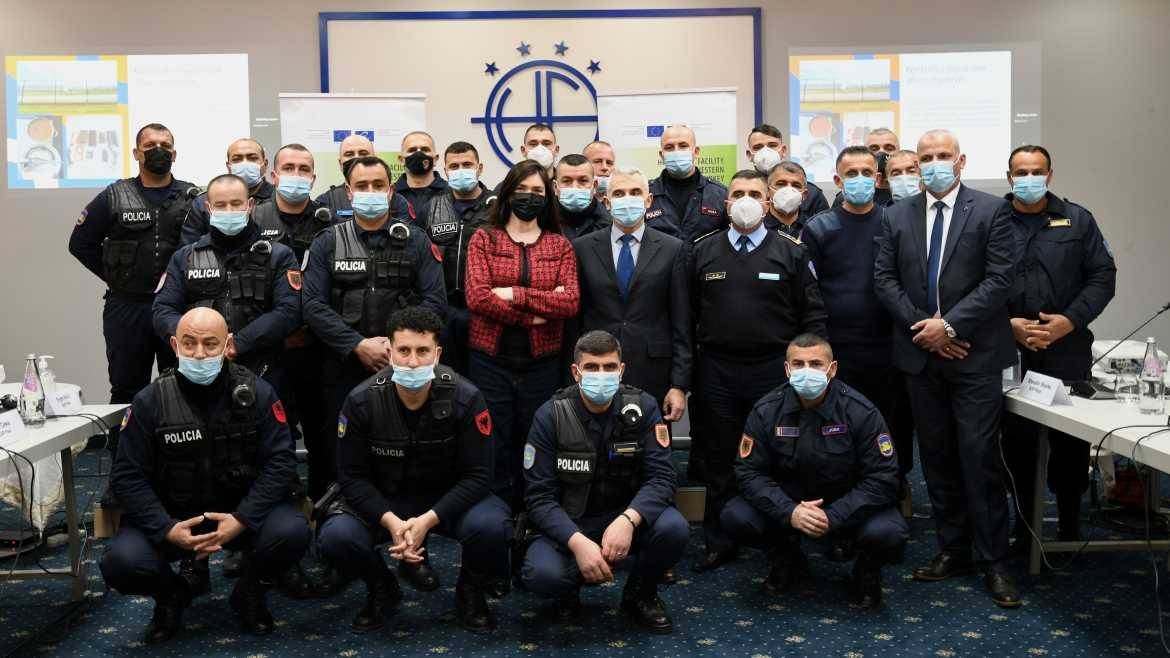In the process of assisting public authorities in the Western Balkans in their efforts to enhance the protection of human rights of prisoners and detained persons, key interventions have been conducted in the framework of the Horizontal Facility II programme aiming to support public authorities to further enhance prison and police reforms.
In co-operation with the Training Centre for prison staff in Albania, the programme continued to raise the capacities of Albanian prison police concerning important security aspects. A training conducted with 26 prison police from Fier and Peqin prisons tackled important topics including escorting and transportation of prisoners and pre-trial detainees, searches, means of restraint, prevention and proportionality of the use of force. In addition the capacity building event in Tirana gathering 25 prison professionals from the prisons of Tirana, Durres and Lezha focused on early detection of suicidal tendencies amongst prisoners, reaction to incidents and development of individualised treatment plans to prevent prisoners from self-harming.
In Bosnia Herzegovina, 18 police and prison professionals received their human rights trainer accreditations. This accreditation recognises the local professionals' skills in designing, developing, implementing and evaluating human rights training programmes based on European standards and guidelines. The successful obtaining of the accreditations by the local professionals was supported by a series of EU co-funded projects in the past years.
In the same context, the team of trainers for police special forces (who were trained with the support of the programme) in co-operation the Ministry of Interior, Police Administration and Police Academy in Montenegro organised the first in a series of cascade trainings, which targeted intervention units of all Montenegrin security centres. As a result, a total of 16 members of intervention units from various security centres (Podgorica, Niksic, Berane and Pljevlja) underwent intensive trainings with real life scenarios and enhanced their mental tactical skills, as well as acquired technics for stress management under extreme conditions.
In North Macedonia, through the support of the programme, the Public Prosecutor’s Office on Fighting Organised Crime and Corruption received technical equipment to support its role in the External Oversight Mechanism (EOM). The EOM was established with the support of the European Union and the Council of Europe in 2018 to focus on cases where persons with police authority while being on or off duty, use force, coercion or serious threat, leading to inhuman or degrading treatment.
Furthermore, to discuss current challenges regarding the provision of healthcare in prisons, as well as related measures to address such challenges, key actors in the field gathered in Mavrovo. They agreed on crucial recommendations to improve the provision of effective healthcare in the prisons in North Macedonia. In the past year, the programme has provided medical equipment for six prison institutions, at a value of over 46,000 EUR including a dental equipment in Idrizovo, the largest prison in the country.

